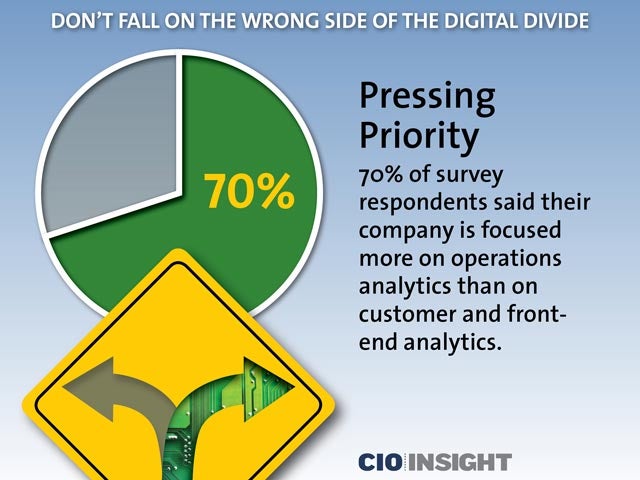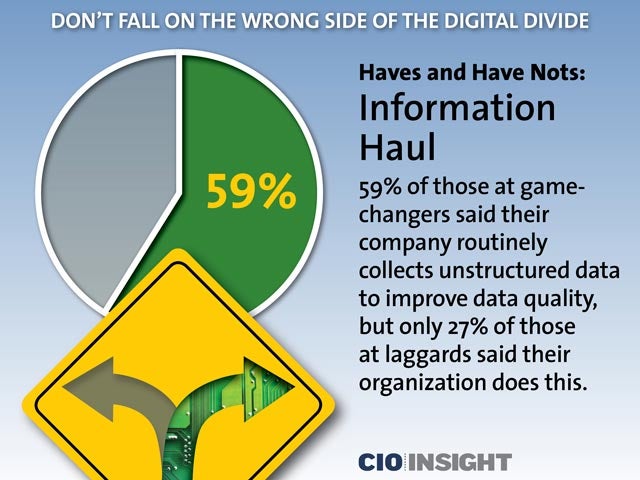
Don’t Fall on the Wrong Side of the Digital Divide
 Don’t Fall on the Wrong Side of the Digital Divide
Don’t Fall on the Wrong Side of the Digital Divide
The business world is being divided into data-enabled leaders—and those who struggle with deploying analytics and big-data initiatives.
 Pressing Priority
Pressing Priority
70% of survey respondents said their company is focused more on operations analytics than on customer and front-end analytics.
 Positive Progress
Positive Progress
69% said their organization has been no less than “moderately successful” in achieving objectives from operations analytics.
 Uncoordinated Effort
Uncoordinated Effort
59% cite the ineffective collaboration of analytics in different functional areas as a significant business challenge.
 Haves and Have Nots: Useful Asset
Haves and Have Nots: Useful Asset
68% of survey respondents at game-changers said their organization utilizes more than half of its operations data, compared to 45% of those at laggards who said their company does this.
 Haves and Have Nots: Information Haul
Haves and Have Nots: Information Haul
59% of those at game-changers said their company routinely collects unstructured data to improve data quality, but only 27% of those at laggards said their organization does this.
 Haves and Have Nots: Essential Component
Haves and Have Nots: Essential Component
52% of those at game-changers said analytics is an essential component of their decision-making, but just 28% of those at laggards agree.
 Haves and Have Nots: Enlightened Perspective
Haves and Have Nots: Enlightened Perspective
48% of those at game-changers said their organization routinely uses external data to enhance insights, while only 23% of those at laggards say their company is doing this.
 Haves and Have Nots: Fully Immersed
Haves and Have Nots: Fully Immersed
43% of those at game-changers said their organization has completely integrated data sets, compared to just 11% of those at laggards who claim the same.